Nilesh Chakraborty
Introduction to Neural Network based Approaches for Question Answering over Knowledge Graphs
Jul 22, 2019

Abstract:Question answering has emerged as an intuitive way of querying structured data sources, and has attracted significant advancements over the years. In this article, we provide an overview over these recent advancements, focusing on neural network based question answering systems over knowledge graphs. We introduce readers to the challenges in the tasks, current paradigms of approaches, discuss notable advancements, and outline the emerging trends in the field. Through this article, we aim to provide newcomers to the field with a suitable entry point, and ease their process of making informed decisions while creating their own QA system.
Translating Natural Language to SQL using Pointer-Generator Networks and How Decoding Order Matters
Nov 13, 2018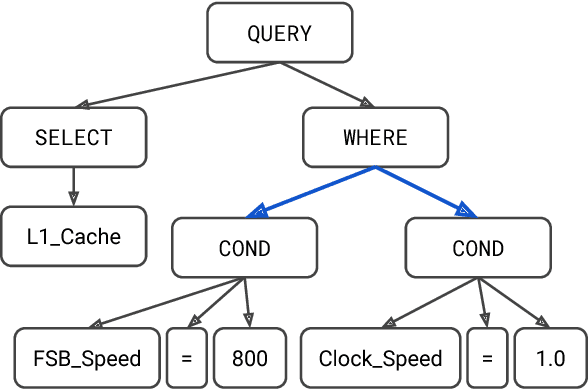
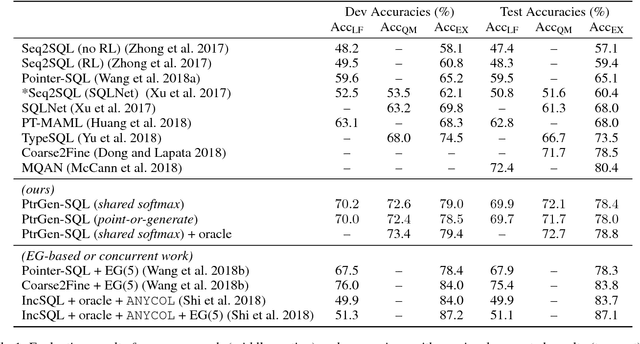

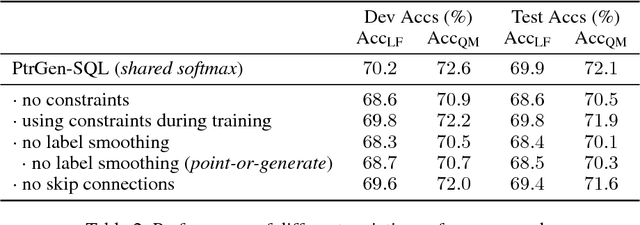
Abstract:Translating natural language to SQL queries for table-based question answering is a challenging problem and has received significant attention from the research community. In this work, we extend a pointer-generator and investigate the order-matters problem in semantic parsing for SQL. Even though our model is a straightforward extension of a general-purpose pointer-generator, it outperforms early works for WikiSQL and remains competitive to concurrently introduced, more complex models. Moreover, we provide a deeper investigation of the potential order-matters problem that could arise due to having multiple correct decoding paths, and investigate the use of REINFORCE as well as a dynamic oracle in this context.
Learning to Rank Query Graphs for Complex Question Answering over Knowledge Graphs
Nov 02, 2018

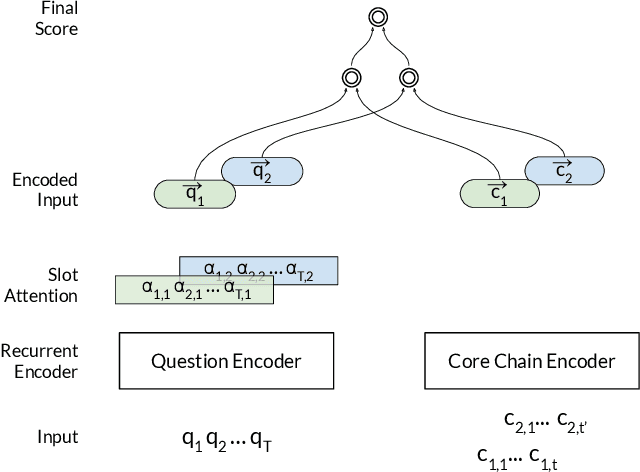
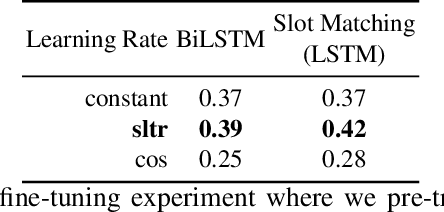
Abstract:In this paper, we conduct an empirical investigation of neural query graph ranking approaches for the task of complex question answering over knowledge graphs. We experiment with six different ranking models and propose a novel self-attention based slot matching model which exploits the inherent structure of query graphs, our logical form of choice. Our proposed model generally outperforms the other models on two QA datasets over the DBpedia knowledge graph, evaluated in different settings. In addition, we show that transfer learning from the larger of those QA datasets to the smaller dataset yields substantial improvements, effectively offsetting the general lack of training data.
 Add to Chrome
Add to Chrome Add to Firefox
Add to Firefox Add to Edge
Add to Edge